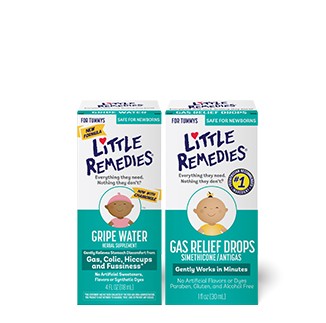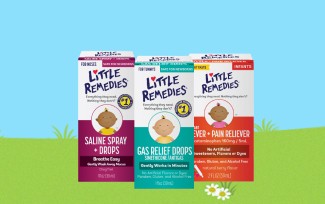


8 Natural Ways to Get Rid of Hiccups in Newborns
Written by on July 8th, 2015
Everyone gets hiccups occasionally, even newborns. Hiccups, which can be triggered by overfeeding or swallowing too much air, are actually small contractions in the diaphragm like tiny muscle spasms.
Did you know babies get hiccups in utero? Mine did. Usually around 2:00 a.m. The first time it happened, I didn’t know what to think. Then I realized the rhythmic movements were not mine, they were my baby’s. I quickly looked on online and discovered hiccups in utero were totally normal.
We’re not exactly sure why babies get hiccups in the womb, but it is believed that this occurs as the central nervous system is forming, so the brain is mimicking or practicing the same reflexes your baby will experience after birth. Baby is also drinking and/or breathing amniotic fluid, so that could also trigger hiccups. Either way, if your baby bump has the hiccups, don’t fret! They will go away on their own.
While hiccups aren’t a big problem for adults and children, they can disrupt feedings, digestion and daily routines for babies. If you’re looking for natural ways to soothe your baby’s hiccups, here’s a list of suggestions to try that work much better than old wive’s tales like scaring them away or tricking them away with a spoonful of sugar!
Feed Baby Smaller Amounts
When a hungry baby takes in too much milk too fast, that can cause the stomach to distend, which can cause hiccups. Instead of one big feeding, feed baby half as much, but twice as often. That way your baby can digest her milk more slowly, avoid a too-full tummy and alleviate gas pressure that can trigger hiccups.
Don’t Nurse a Fussy Baby
If your baby is getting cranky or fussy during a feeding, there’s a chance she’ll swallow air, which can cause hiccups. Instead of continuing to breast feed or bottle-feed a cranky baby, stop the feeding for a little while and see if you can calm your baby down. The fussing and the nursing can lead to hiccups and spitting up, so taking a sort break may help baby relax and swallow less air.
Change Baby’s Feeding Position
It took me a while to figure this out when I was a new mom, but sitting baby upright during feedings can ease hiccups. This position allows gas to rise and pass naturally, easing a distended tummy situation. By more upright, I mean hold her at a 30-45 degree angle instead of laying her down in the crook of your elbow. You can also subtly shift baby during feeding breaks to see if that will stop a bout with hiccups.
Burp Baby Between Feedings
An easy way to slow down baby’s milk intake is to burp her in the middle of a feeding. If you’re breastfeeding, burp her when you switch breasts. If you bottle-feed, burp her when she’s halfway done with her bottle. This is a great opportunity to sit baby upright and gently rub or pat her back, or lay her head on your shoulder and give her a chance to pass air bubbles. The less air bubbles, the less likely your baby is to get hiccups.
Latching Correctly During Nursing
If you’re breastfeeding your baby, make sure she is latching on correctly. If not, she may be swallowing extra air during her feedings. Most breastfed babies don’t make a lot of gurgling and gulping sounds. If your baby is doing this or seems to get fussy, try to latch her on again, so you have a tight seal on your nipple. And if you’re a new mommy, don’t worry! Breastfeeding is not always easy during the first few weeks, but you’ll get the hang of it. And so will your baby!
Holding Bottle Correctly
If you bottle-feed your baby, tilt the bottle so the milk completely fills the nipple -- the less air that collects at the bottom of the bottle, the better. Make sure your baby’s head is slightly elevated. If you hold her at a 45-degree angle, she should be able to see your face. Also, make sure you are using good nipples on the bottle. Hand-washing bottle nipples instead of putting them in the dishwasher can make them last longer.
Massage Baby’s Back
If your baby has hiccups that won’t subside within a few minutes, you can place baby on the ground and let her move around on her tummy. Sometimes the pressure will immediately stop hiccups. You can also gently massage your baby’s back to help the process.
Look for Signs of Colic
Colicky babies who suffer from tummy pain and spitting up may have reflux that causes hiccups. If your baby seems to have hiccups all of the time, this could be the culprit. This is when you can add products like Little Remedies Gripe Water or Little Remedies Gas Relief Drops to your feeding routine. These products work in minutes to soothe colic symptoms, making your baby much more comfortable and much happier during feedings.
Think your baby has colic? Check out 5 Things You Should Know About Colic.







